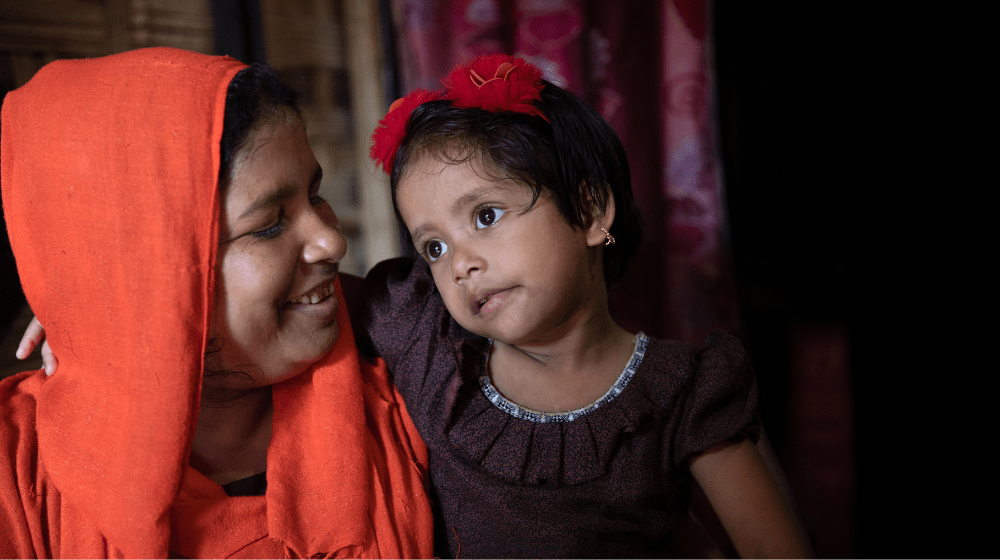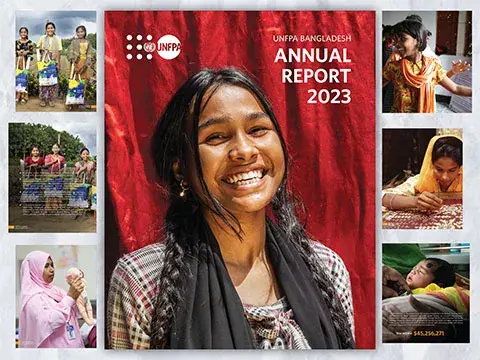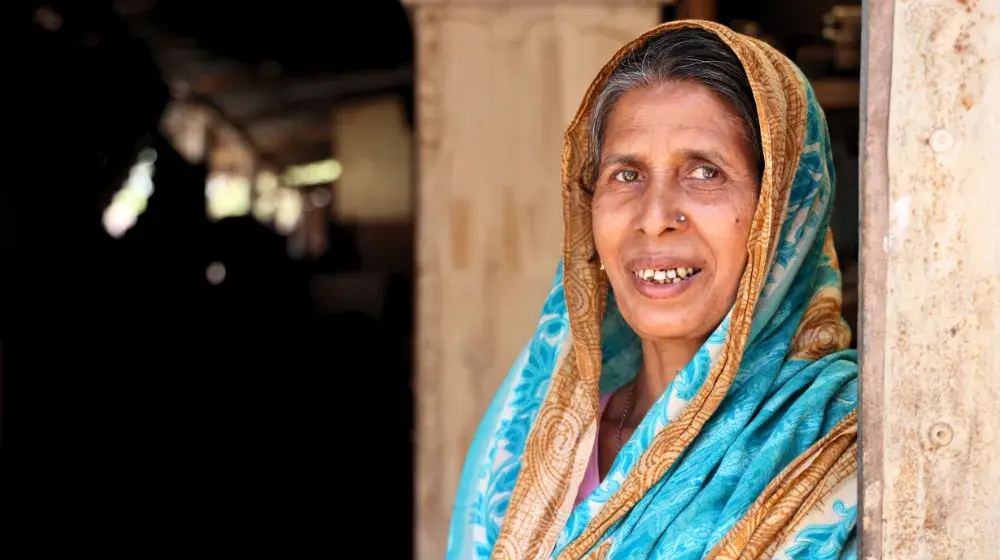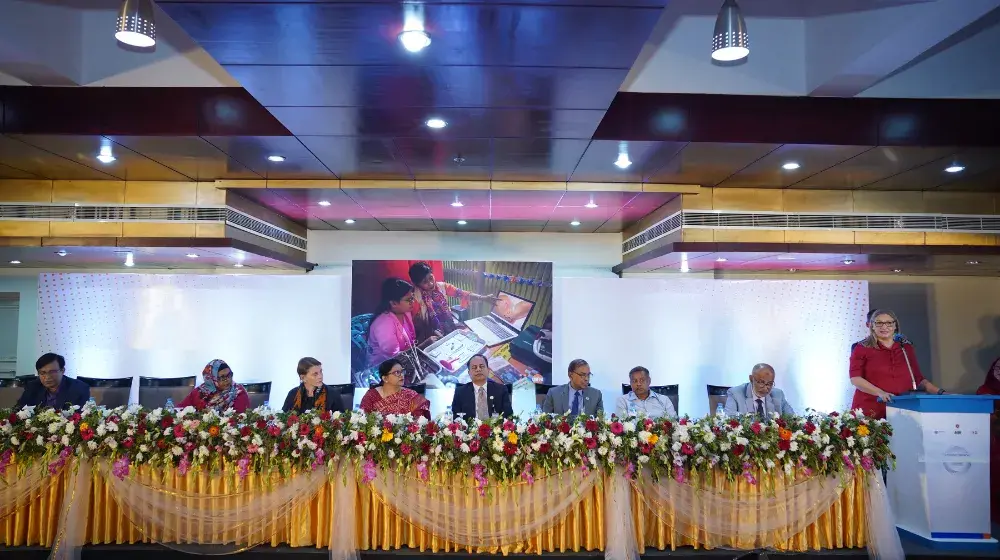Khaleda and her husband have called the Kutupalong refugee camp in Cox's Bazar home for years, having fled Myanmar to seek safety and a better future. At 30 years old, Khaleda is a mother of four – three sons and a daughter.
Life in the refugee camp has not been easy, but Khaleda found support and guidance from the dedicated community health workers who regularly visited her home in the Rohingya camp. These visits, along with informative courtyard sessions held in her community, taught Khaleda valuable information about maternal health care and family planning. It was through one of these interactions that Khaleda learned about the benefits of delivering her last child, Runa, in a healthcare facility rather than at home. This experience instilled in her a sense of trust and confidence in midwives and the healthcare services available to her.
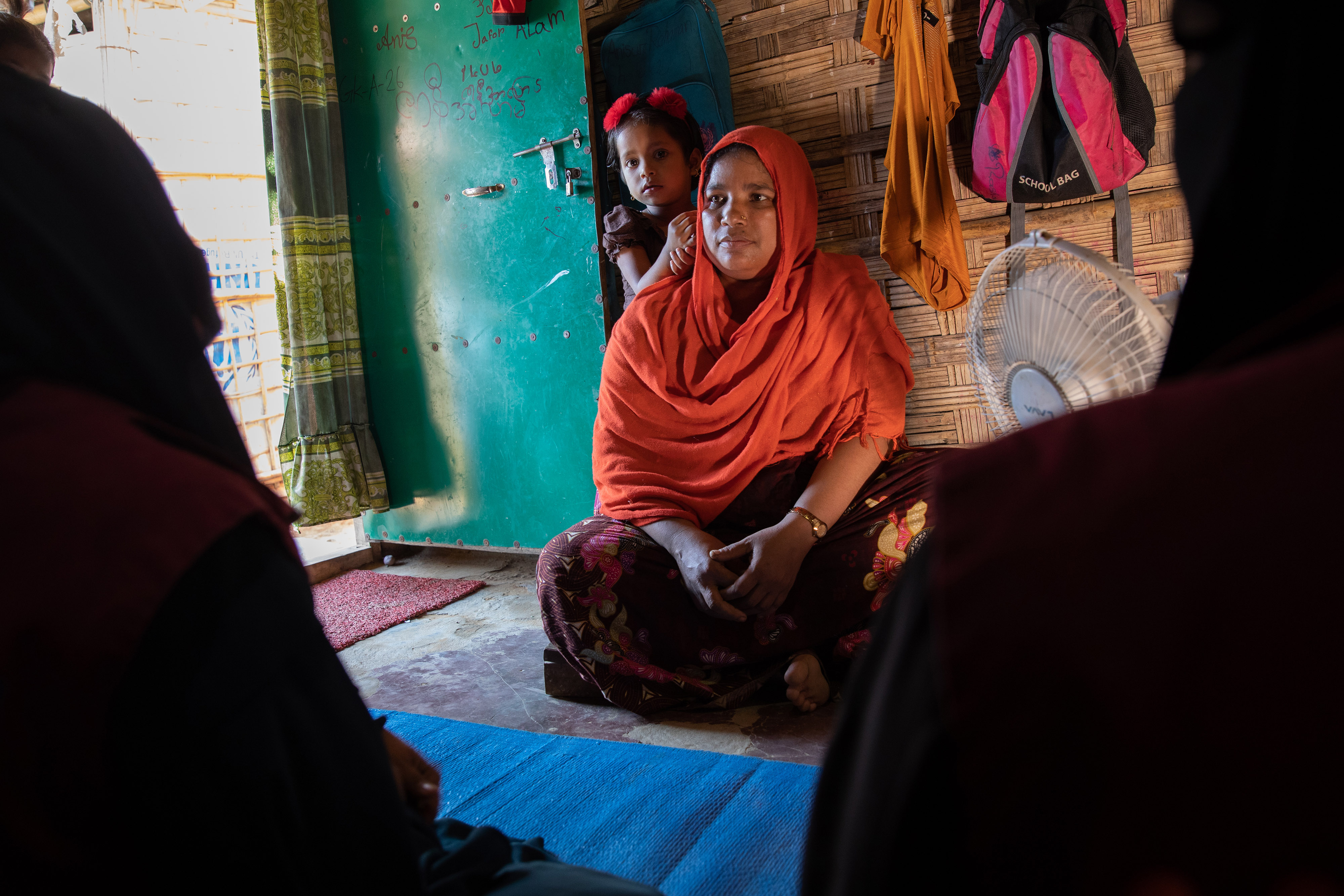
Khaleda receives valuable information from community health workers during a home visit in the refugee camp.
In addition to maternal health, the community health workers introduced Khaleda to various family planning options. This information was transformative. Understanding the importance of managing the size of her family for their overall well-being, Khaleda made an informed decision to opt for an implant, a method of contraception that would prevent pregnancy for four years.
“Too many children means too much responsibility,” Khaleda shares, reflecting on her decision. "The implant has brought me peace, allowing me to care for my existing children without the added stress of an unplanned pregnancy." She adds, feeling empowered and in control of her reproductive health.
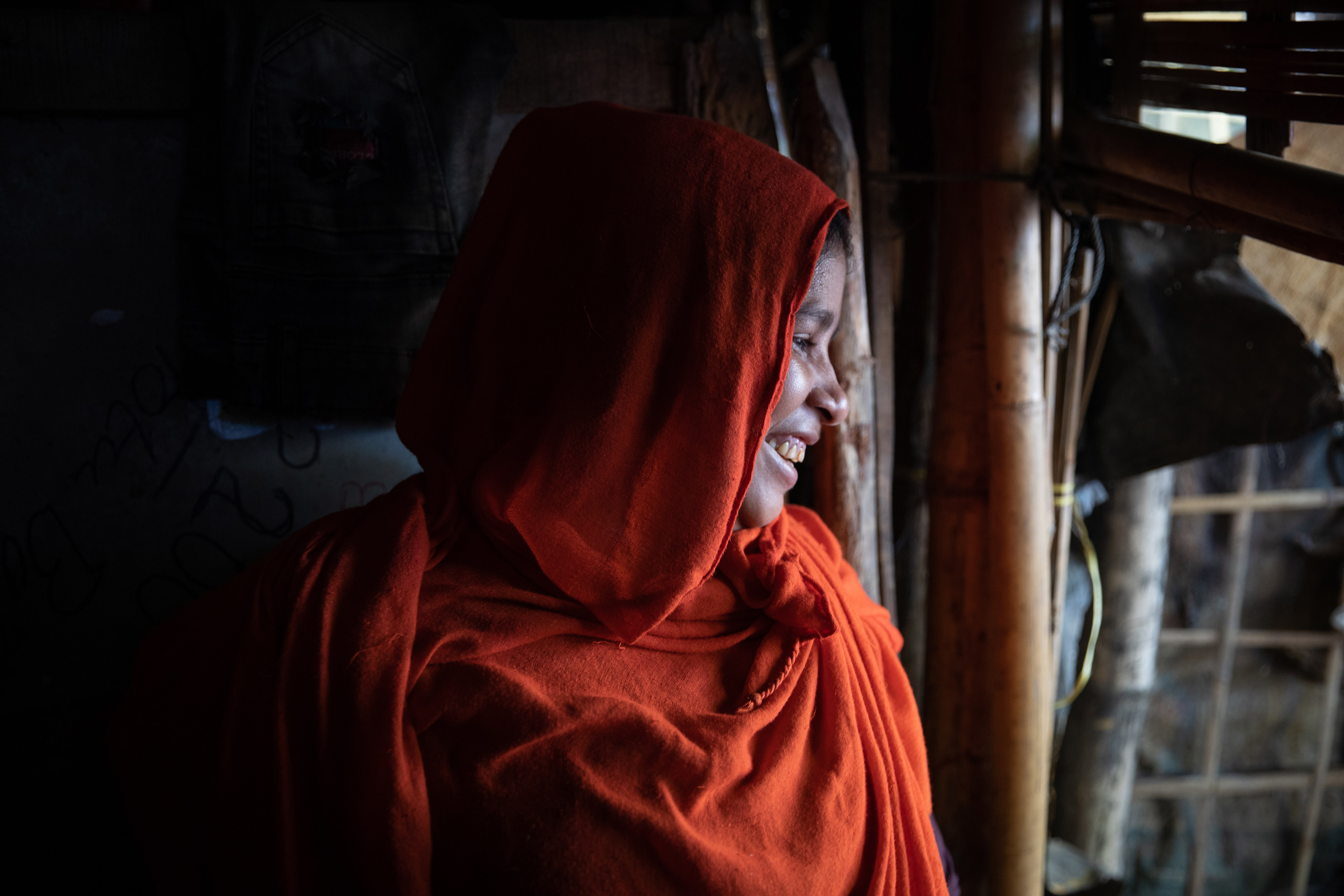
Khaleda, feeling empowered and in control of her reproductive health, smiles with confidence in her home.
One of the health workers, Amina, has been a consistent source of support for Khaleda. “I remember when Amina first visited me,” Khaleda recalls. “I was overwhelmed with my responsibilities, and the idea of more children was frightening. Amina patiently explained to me the various family planning methods.”
Amina's dedication goes beyond just providing information. She often sits with Khaleda and other women in the camp, discussing not just health, but also the cultural beliefs that sometimes conflict with modern family planning methods. “In our community, there is a strong belief that children are a blessing from Allah and that it's not our place to prevent births,” Amina explains. “But we also have to consider the health and future of the children we already have.”
Khaleda’s journey was not without its challenges. Convincing her husband and her family initially about the implant was difficult.
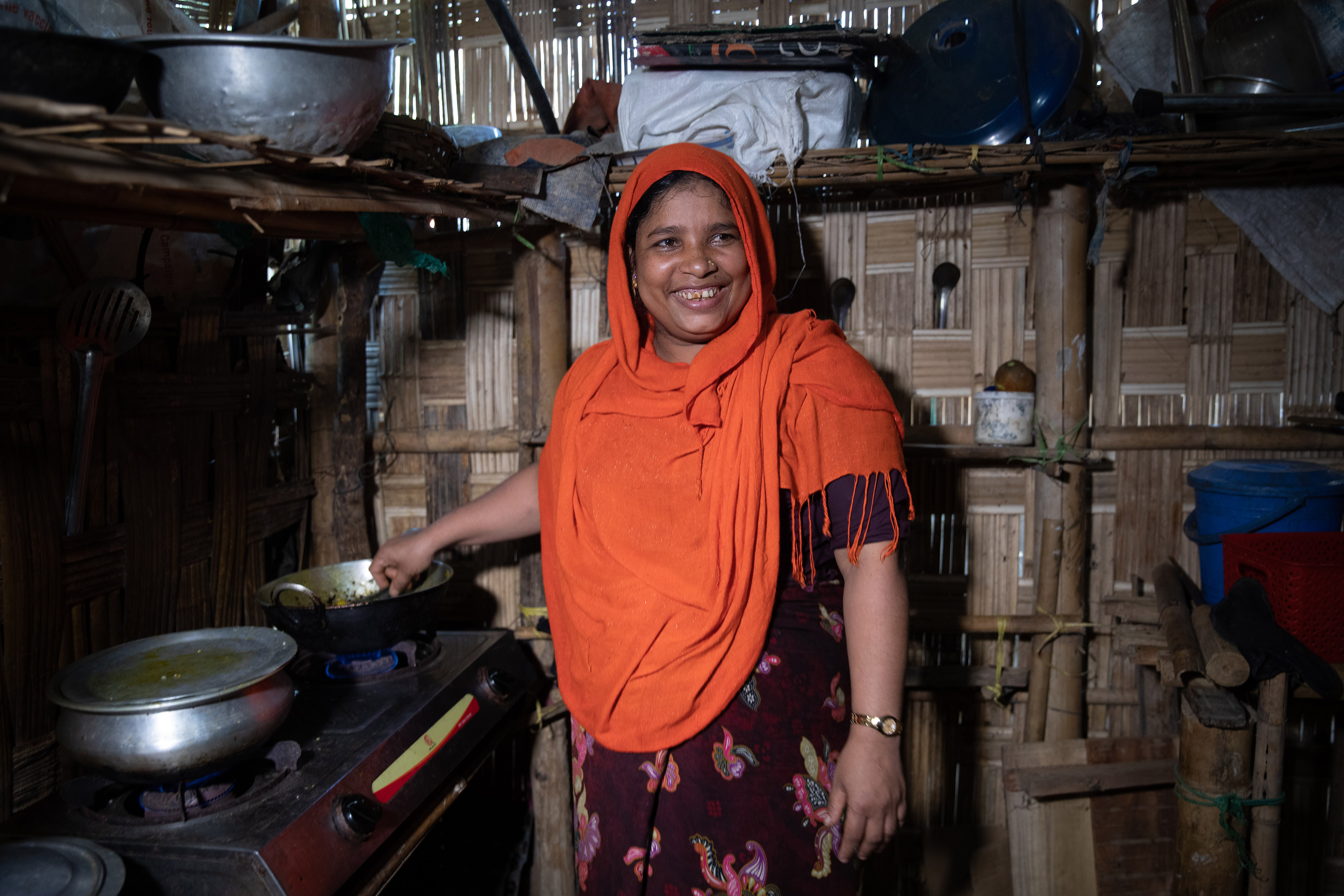
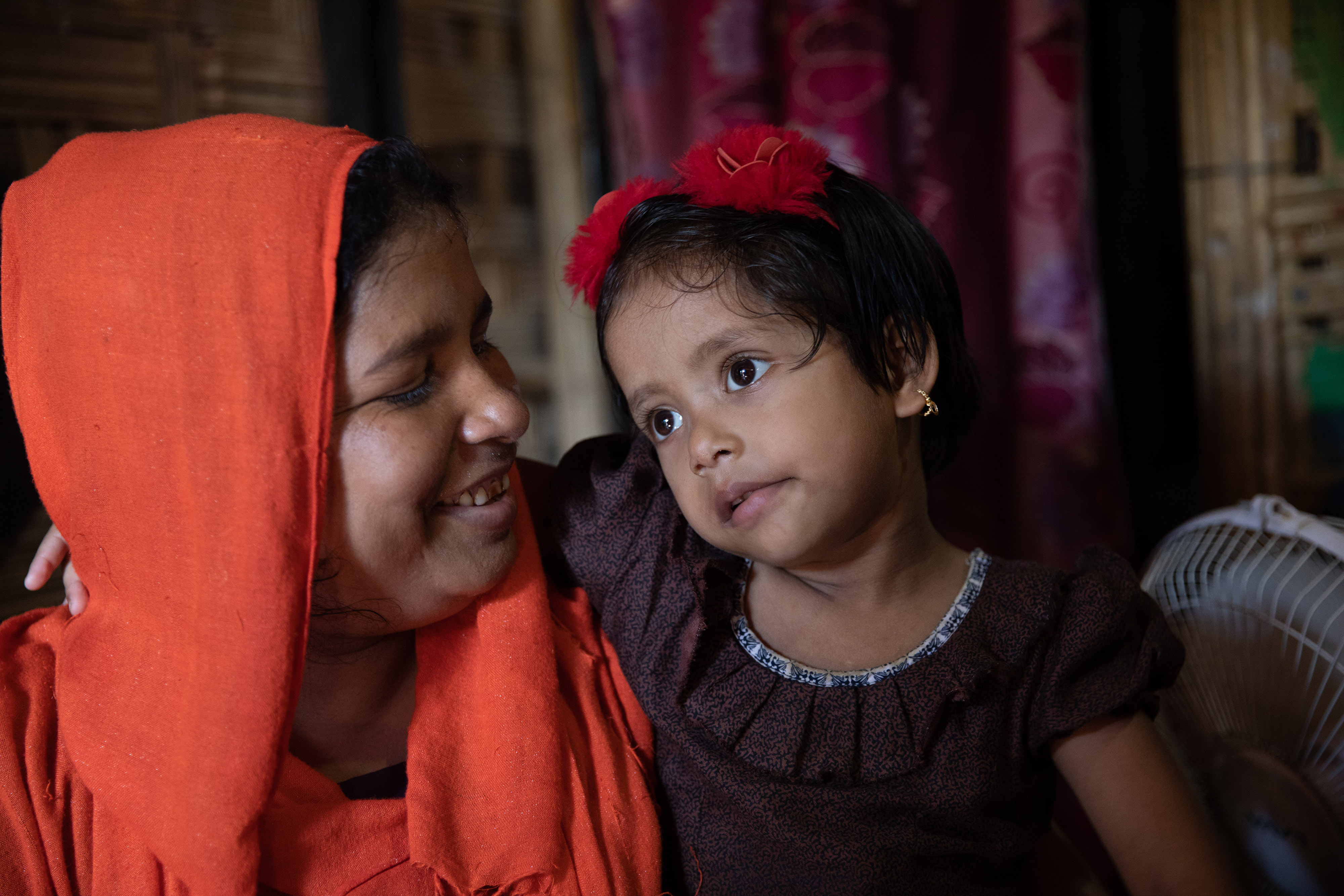
Khaleda shares a tender moment with her daughter Runa, grateful for the support that has enabled her to focus on her family’s well-being.
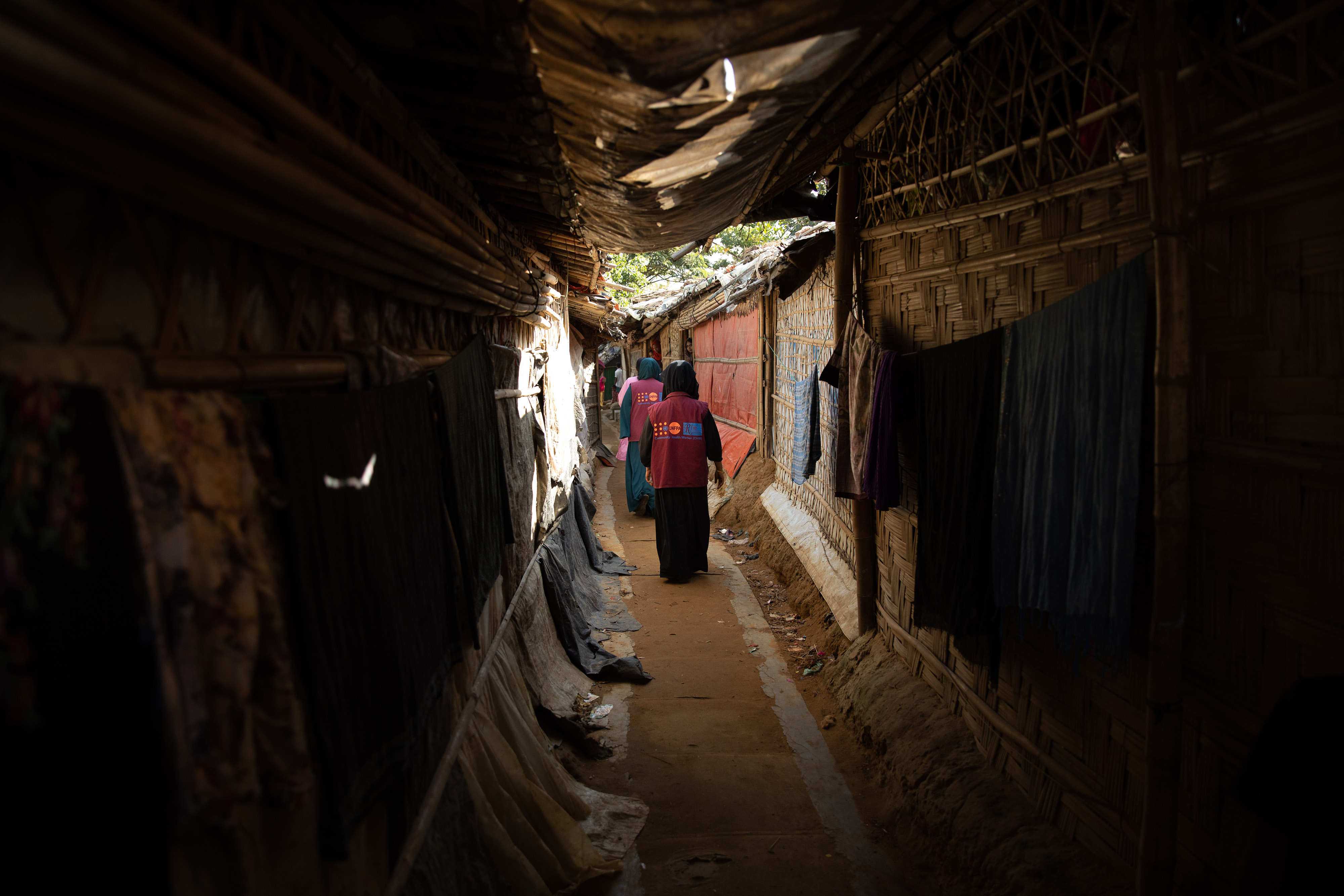
Community health workers walk through the narrow pathways of the camp, dedicated to bringing essential health services to women like Khaleda.
Through continuous awareness sessions and access to essential health services, UNFPA empowers women like Khaleda to make informed choices about their reproductive health, ensuring better futures for their families living in the Rohingya refugee camps.

